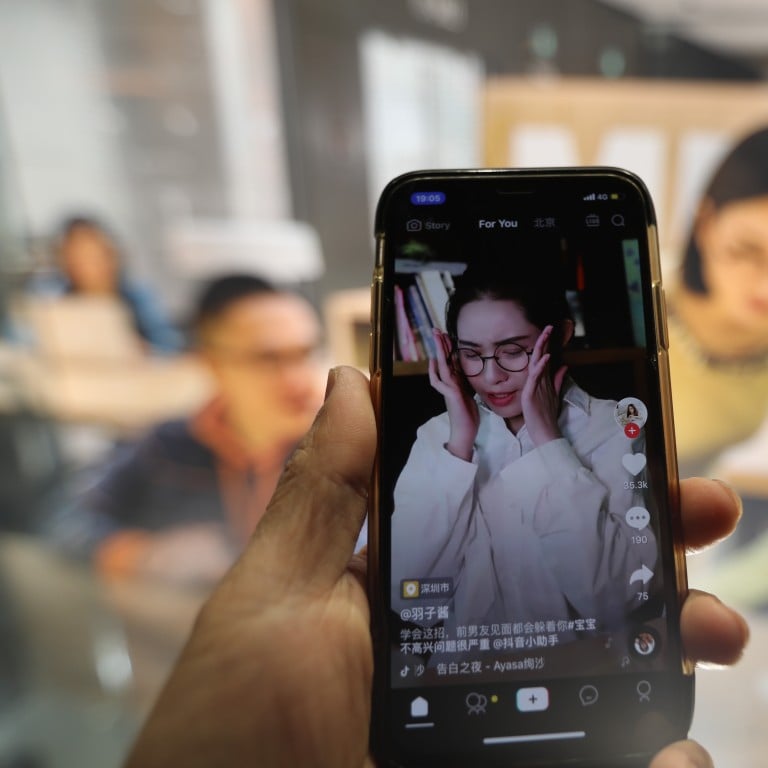
Chinese short video app Douyin introduces reverse-image search function as way to boost ad revenue
- Beijing-based company revised its revenue target for 2019 to 120 billion yuan (US$16.8 billion) from an earlier goal set late last year of 100 billion yuan
Popular Chinese short video app Douyin, known as TikTok outside China, has introduced a reverse-image search tool that enables some users to find in-video products such as clothing, which they can then purchase directly within the app.
The move could help Douyin’s owner ByteDance capitalise on the growing popularity of the video app, which had accumulated 320 million daily active users as of July. The privately held Beijing-based company just revised its revenue target for 2019 to 120 billion yuan (US$16.8 billion) from an earlier goal set late last year of 100 billion yuan, according to Reuters.
The new function was spotted by China tech analyst Matthew Brennan, who first showed the in-video search tool on Twitter last week. While watching a video clip of Chinese comedian Xiao Shenyang, more videos of the celebrity popped up after clicking a circle icon on the right side of the screen. As Brennan moved the search area over Xiao’s pants, similar clothing products popped up and could be bought directly by users.
ByteDance did not respond to a request for comment on Thursday but the description on the app’s page said the reverse search function can be used to find other videos of celebrities, or videos of similar-looking pets, based on still images – suggesting that the company is collecting identifiable data from its content that could potentially be used for generating ad revenue.
The function is only available to selected users on the Chinese version of the app and it is not clear whether Douyin will make it available to the overseas market in the future. It is also unclear whether the platform is scanning videos that Douyin users have tagged as private.
TikTok owner ByteDance’s first-half revenue said to reach more than US$7 billion
Twitter user @AlvinGrissomII commented under Brennan’s Twitter post, “This was predictable, but it still has horrifying implications for privacy”.
Backed by artificial intelligence algorithms, the technology behind reverse image search is not new. Google's search engine offers the function, but it has raised privacy concerns, especially in the age of deepfakes.
In August the face-swapping app Zao, backed by Chinese social media app developer Momo, went viral on social media but immediately sparked controversy over privacy issues.
Mounting privacy concerns related to facial recognition also led to a decision by Facebook on Tuesday to discontinue an automatic photo-tagging option, according to Reuters.
Facebook began using face recognition technology in December 2017 to notify some users if their profile photo had been used by someone else or if they appeared in photos where they had not been tagged. Users can also opt out of the notification service.
For more insights into China tech, sign up for our tech newsletters, subscribe to our Inside China Tech podcast, and download the comprehensive 2019 China Internet Report. Also roam China Tech City, an award-winning interactive digital map at our sister site Abacus.

